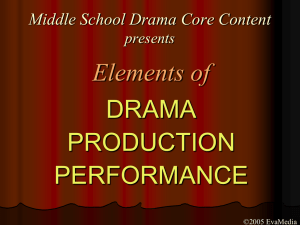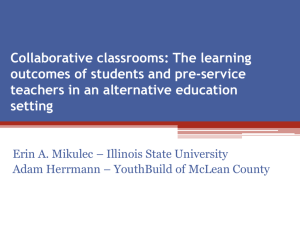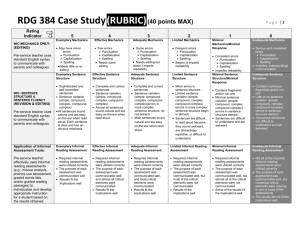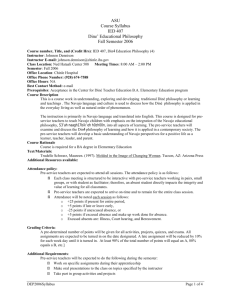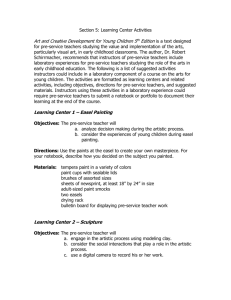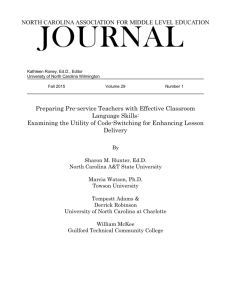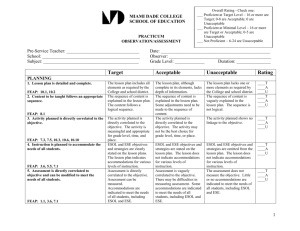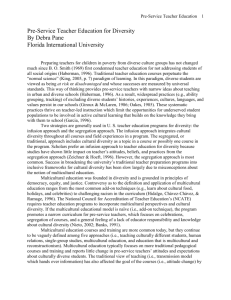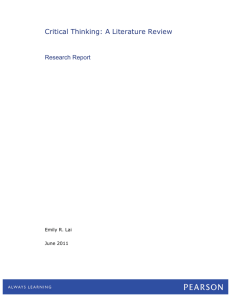476 Relationships between sediment contamination and
advertisement
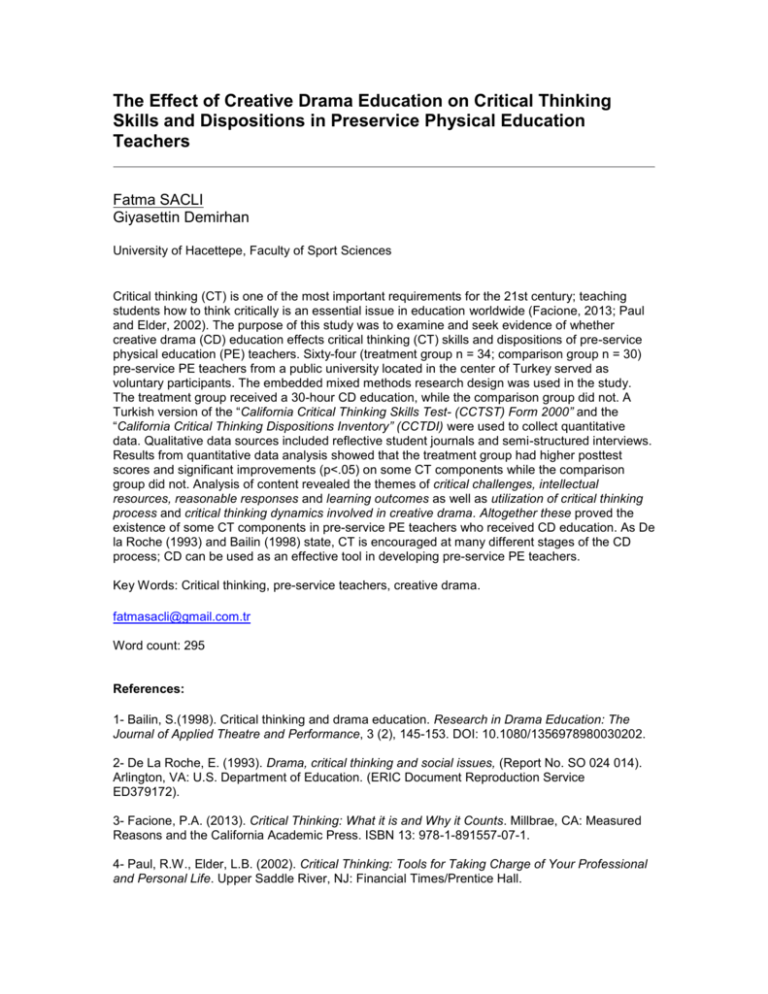
The Effect of Creative Drama Education on Critical Thinking Skills and Dispositions in Preservice Physical Education Teachers Fatma SACLI Giyasettin Demirhan University of Hacettepe, Faculty of Sport Sciences Critical thinking (CT) is one of the most important requirements for the 21st century; teaching students how to think critically is an essential issue in education worldwide (Facione, 2013; Paul and Elder, 2002). The purpose of this study was to examine and seek evidence of whether creative drama (CD) education effects critical thinking (CT) skills and dispositions of pre-service physical education (PE) teachers. Sixty-four (treatment group n = 34; comparison group n = 30) pre-service PE teachers from a public university located in the center of Turkey served as voluntary participants. The embedded mixed methods research design was used in the study. The treatment group received a 30-hour CD education, while the comparison group did not. A Turkish version of the “California Critical Thinking Skills Test- (CCTST) Form 2000” and the “California Critical Thinking Dispositions Inventory” (CCTDI) were used to collect quantitative data. Qualitative data sources included reflective student journals and semi-structured interviews. Results from quantitative data analysis showed that the treatment group had higher posttest scores and significant improvements (p<.05) on some CT components while the comparison group did not. Analysis of content revealed the themes of critical challenges, intellectual resources, reasonable responses and learning outcomes as well as utilization of critical thinking process and critical thinking dynamics involved in creative drama. Altogether these proved the existence of some CT components in pre-service PE teachers who received CD education. As De la Roche (1993) and Bailin (1998) state, CT is encouraged at many different stages of the CD process; CD can be used as an effective tool in developing pre-service PE teachers. Key Words: Critical thinking, pre-service teachers, creative drama. fatmasacli@gmail.com.tr Word count: 295 References: 1- Bailin, S.(1998). Critical thinking and drama education. Research in Drama Education: The Journal of Applied Theatre and Performance, 3 (2), 145-153. DOI: 10.1080/1356978980030202. 2- De La Roche, E. (1993). Drama, critical thinking and social issues, (Report No. SO 024 014). Arlington, VA: U.S. Department of Education. (ERIC Document Reproduction Service ED379172). 3- Facione, P.A. (2013). Critical Thinking: What it is and Why it Counts. Millbrae, CA: Measured Reasons and the California Academic Press. ISBN 13: 978-1-891557-07-1. 4- Paul, R.W., Elder, L.B. (2002). Critical Thinking: Tools for Taking Charge of Your Professional and Personal Life. Upper Saddle River, NJ: Financial Times/Prentice Hall.



